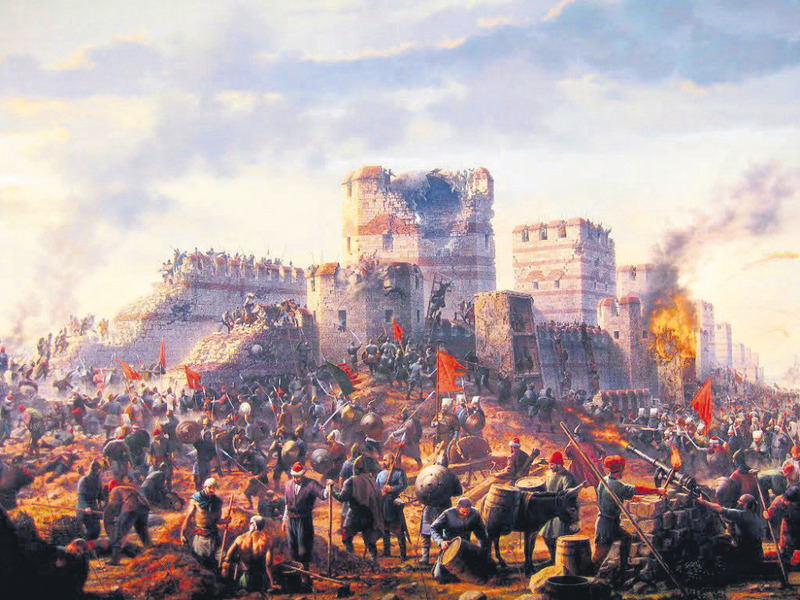The Conquest of Constantinople: Shaping History and Inspiring Generations (Also Me)
The conquest of Constantinople stands as a pivotal event in the annals of world history. Transpiring on May 29, 1453, this monumental event unfolded after a grueling 55-day siege led by Sultan Mehmed II and his formidable army of 80,000 soldiers. The city, which held sway as the capital of the Byzantine Empire and the nucleus of Eastern Christianity, fell to the relentless advance of Muslim invaders who breached its ancient fortifications, seizing its treasures. With this conquest, Constantinople witnessed the passing of an era, as the Byzantine Empire yielded to the ascendancy of the Ottoman Empire, forging a new geopolitical landscape that would resonate far beyond the borders of Asia and Europe.
I. Impact on History:
The conquest of Constantinople precipitated seismic shifts in the geopolitical equilibrium. The Ottomans emerged as a juggernaut, challenging the Christian kingdoms and territorial boundaries across Africa, the Middle East, and Eastern Europe. In stark contrast, the Byzantine Empire, a bastion of culture and enlightenment for ages, saw its dominion extinguished, its lands parcelled out amongst its adversaries.
Furthermore, this watershed event impelled a renaissance in exploration and navigation. Disruption in trade and communication routes between Europe and Asia, particularly with vital partners like China and India, ignited the quest for alternative avenues to reach the Orient. This catalyzed the pioneering endeavors of luminaries such as Christopher Columbus and Vasco da Gama, steering humanity towards new frontiers of wealth and enlightenment.
The reverberations of Constantinople's fall also reverberated within the realms of art and science. The exodus of scholars, artists, and intellectuals from the city sparked a diaspora to places like Italy, instigating the Renaissance. This cultural resurgence breathed life into classical knowledge and spurred innovation. Additionally, the Ottomans undertook the stewardship and evolution of Byzantine heritage, infusing it into their own architectural, literary, and musical traditions.
II. Significance of the Conquest:
The conquest of Constantinople assumes monumental significance as a fulcrum upon which the trajectory of human civilization pivoted. It epitomizes a definitive juncture, a watershed that etched its mark upon the tapestry of human existence for epochs to come. This momentous event underscores the heights of human achievement, encapsulating the grand interplay of military acumen, political ambition, religious diversity, cultural convergence, and historical legacy.
III. Inspiration for Modern Times:
The conquest of Constantinople resounds as an inspiring parable of human tenacity, demonstrating how adversity can be surmounted through valor, resolve, and ingenuity. It exemplifies how the annals of history teem with lessons in adaptation, where successes and failures inform our evolution. Furthermore, it serves as a testament to the potential for unity amidst diversity, showcasing how collective effort can yield mutual benefit and enduring harmony.
Conclusion:
The conquest of Constantinople reverberates through the corridors of time, offering us a profound insight into the ebb and flow of human history. It unveils the intricate dance of human agency and consequence, a symphony of triumphs and tribulations that shape our shared narrative. As we reflect upon this monumental event, let us glean from it the wisdom that the pages of history impart. May it kindle within us a fervor for understanding, compassion, and unity, for these are the lodestars that steer us towards a future worthy of the lessons we inherit.
Peace Out

Comments
Post a Comment